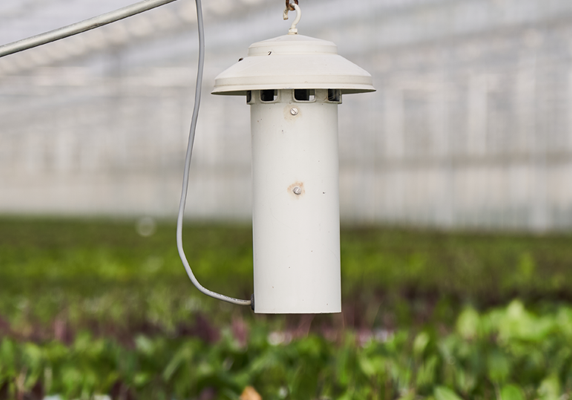
Satter Orchids is a company with a vision that aims at long-term results and performance. Our phalaenopsis are 100% grown with sustainability and we use the latest technology to reduce our energy consumption. We believe in treating our natural resources with respect. This means taking responsibility for the planet and leaving something behind to pass on to the next generations.
Sustainability has become a familiar term. There are many ways to define sustainability. It concerns for caring for our planet, co-existence of human civilization with the earth, maintaining a circular economy, etc., With respect to different meaning, sustainability stands as an important consideration in the operation of a business.
Highlights
Rainwater collection and usage
- All rainwater collected on our 900,000 Sq. feet roof is cleaned, treated and then used for the irrigation of our orchids.
- As we mainly use rainwater it reduces our demand on the public water system.
Biologically controlled pest management
- Our orchids are free from all kinds of chemicals
- Biological controlled plants are environmental friendly
- Growing orchids naturally without any chemical inducers
Climate control systems
- High-tech climate control systems are used to minimize energy consumption
- Light-levels are optimized by use of natural sunlight paired with screen manipulations
- Triple screening for heat retention, humidity and light control.
Local and International
- Our orchids are grown in our own nursery in The Netherlands as well as in nurseries internationally
- Our plants are delivered in local and international markets
- We work collaboratively with distributors and other growers to ensure efficient transportation and that our customer demands are met
On-site water management
- Rainwater that falls on our roof is stored in a large pool.
- On-site stored water pool ensures that overflow is controlled and maintained for the future usage.
Re-use of irrigation water and fertilizers
- Plants utilize both irrigation and reused water
- Collecting irrigation water has an advantage of reusing fertilizers as well as results in less fertilizer usage
- Less usage of fertilizers prevents contamination with ground and public water systems
